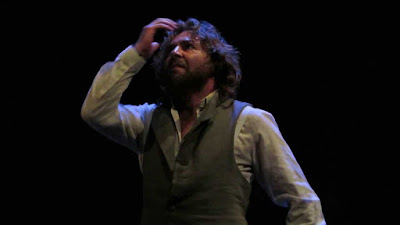The most difficult arias for soprano for a girl like me.
If before I said that arias for
tenor scared me to the point that when I wanted to sing damaged my voice, the
soprano seriously almost left me speechless and with serious injuries in the
throat hahaha. Although most of the time I was glad that they had left most of
the best arias for female voices of great power; the great composers relied
heavily on the ladies for their delicacy, commitment and dedication to each
character through their powerful, fragile, delicate but prominent voice.
Next we will see the great
examples of these words...
- Der holle rache (Die Zauberflöte, W.A. MOZART).
As I said once in this blog
"The most complicated Aria for light soprano" for an excellent
mastery of variations of tone, speed, language (I always say that if there is a
difficult language to sing it is German), a good start it means that it will be
a great interpretation, ease with verses and short words but, most of all, the
fluid and fast handling of the famous staccatos.
In the psychological part the
voice must manage to control and / or handle the anger of the queen of the
night to Pamina (the other personage). I say that the whole opera is focused or
centered in this Aria, that adds a touch more of the interpreter's passion
towards the character. Everything makes, for me, the Aria more complicated,
demanding and with the greatest difficulty for a soprano.
- Liebestod (Tristan und Isolde, Richard Wagner).
Contrary to Mozart, Wagner shows
us a much slower movement in music. Slow movements of the Aria make the
interpreter can handle the voice but soon after we see or hear a somewhat
radical note rise; As it is an opera with a duration of 4 hours, they make the
voice come somewhat tired and the singer must prepare for an Aria that will
require much more than what she gave on stage.
As a melancholic Aria (Isolde had
already lost her beloved in this part of the opera) the voice must be heard
with really high-low notes by the sadness, emotion, discouragement and
disturbance of the character's soul. With a really varied interpretation (as I
said high-low notes) the Liebestod is very complex and tolerant to the voice of
the dramatic soprano.





Me gusta muchísimo. Gracias
ResponderEliminar